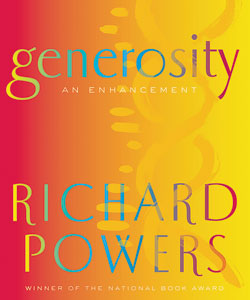
The best writing is re-writing.” Richard Powers has spoken the words. He has written them. He has shared the concept with creative writing students at the University of Illinois at Urbana-Champaign. Now he is demonstrating. As he speaks, his words roll out across the screen of his Lenovo X61 tablet. Row after row. Ready to be worked over, modified, rewritten.
It is astonishing to watch Powers go through the demo in his office at the interdisciplinary Beckman Institute for Advanced Science and Technology. In neighboring offices and state-of-the-art labs, some 600 researchers work on projects that range from genomic biology to artificial intelligence. Here, Powers, an English professor, Pulitzer Prize finalist, and MacArthur “genius,” can draw on their ideas and themes, which he humanizes in his stories.
The New York Times has called Powers the “pre-eminent literary chronicler of the technological age.” With each book, he masters the newest technology, ironically using it to return to an ancient practice. Reclining on a cot in the subdued light of his office, or at home in his bed, he recites his stories as if by campfire at river’s edge, dictating through his Vista voice recognition software, getting it all on the screen—quickly—for the editing.
That process—writing, rewriting, enhancing—syncs perfectly with his tenth novel, Generosity: An Enhancement, coming out in late September from Farrar, Straus, and Giroux. It is a story set in Chicago, where a creative nonfiction instructor—desperate to rewrite his own story—encounters a student, an Algerian refugee who appears eternally happy despite the horrors she has survived. Could she have a “happiness gene”? Can we cut and paste it?
Compelling questions. Can we use advanced technology to rewrite our lives, as well as our stories? Should we? “The book plays with the idea of plots and how many plots you can have,” observes Powers, 52. “It’s as much about writing and rewriting as it is about genes.” It also raises questions about the choices we might make in rewriting our own stories. Do we really want a lifetime of guaranteed happiness or just the pursuit of it?
What we want, Powers suggests, is a life that is “going somewhere,” one that “has a meaningful future” and is “improving.” So “we don’t want to be happy. We want to be a little bit happier, wherever we are,” says Powers, who has lived the science he writes. A big chunk of the research for Generosity was made possible by GQ magazine, which paid for Powers, on assignment, to become only the ninth person on earth to have his genome sequenced.
There also is in all this some challenge for a society of people who one day might rewrite their own lives the way characters in Generosity envision. The way Powers rewrites the text of his books. “In a long-ago America, the secret of happiness consisted of looking at the cards that you were dealt and playing the best round with that hand,” Powers notes. “Increasingly, from all quarters, we’re sent this message that the secret of happiness consists of looking at the hand that you’re dealt and trying to get a redeal.” Or dictating our stories—our lives—only to rewrite them.


